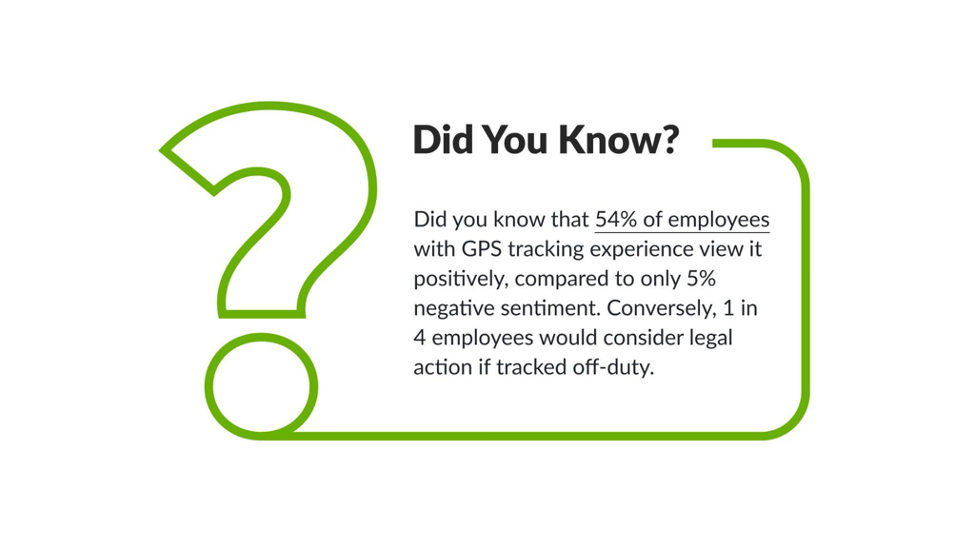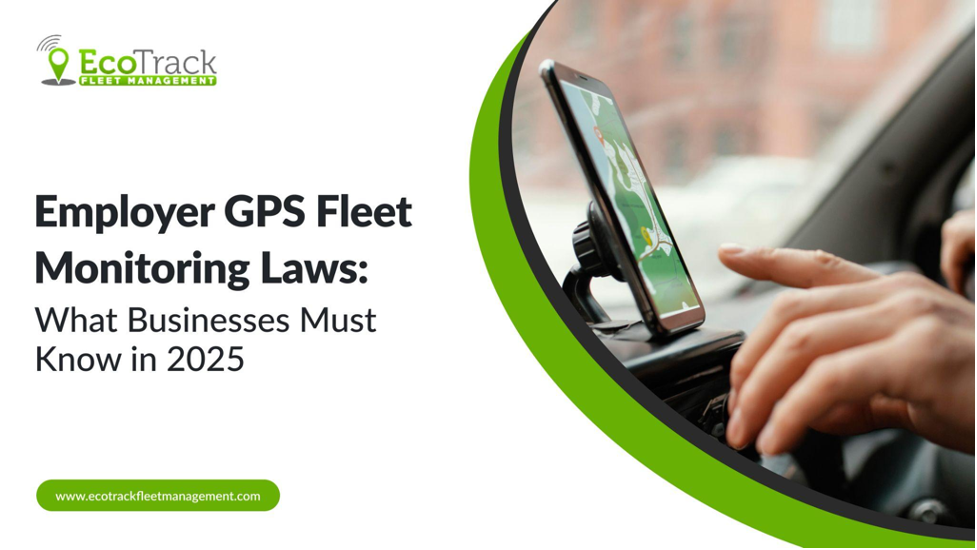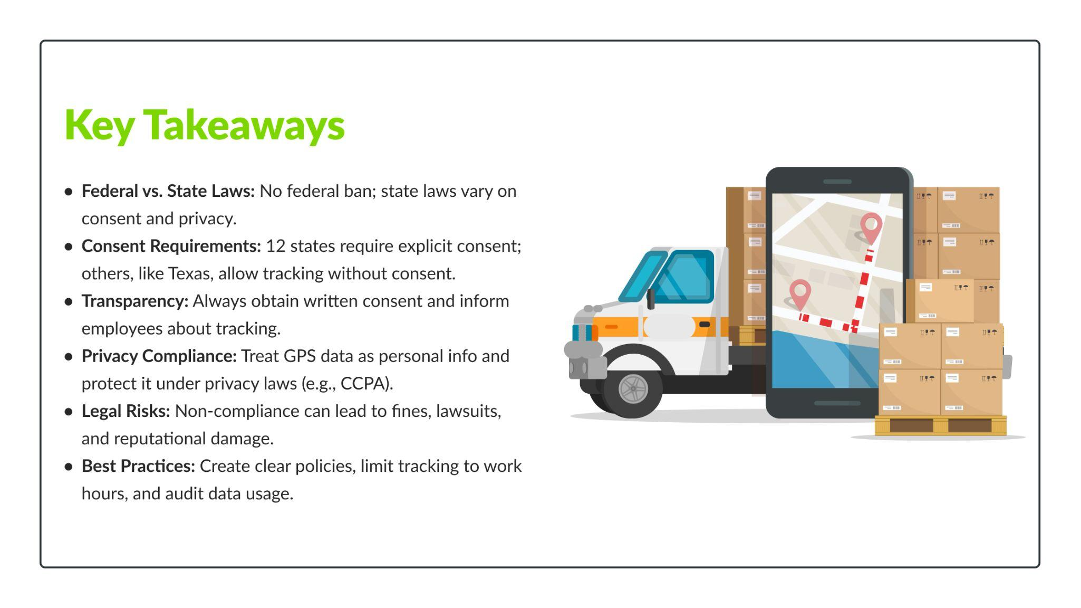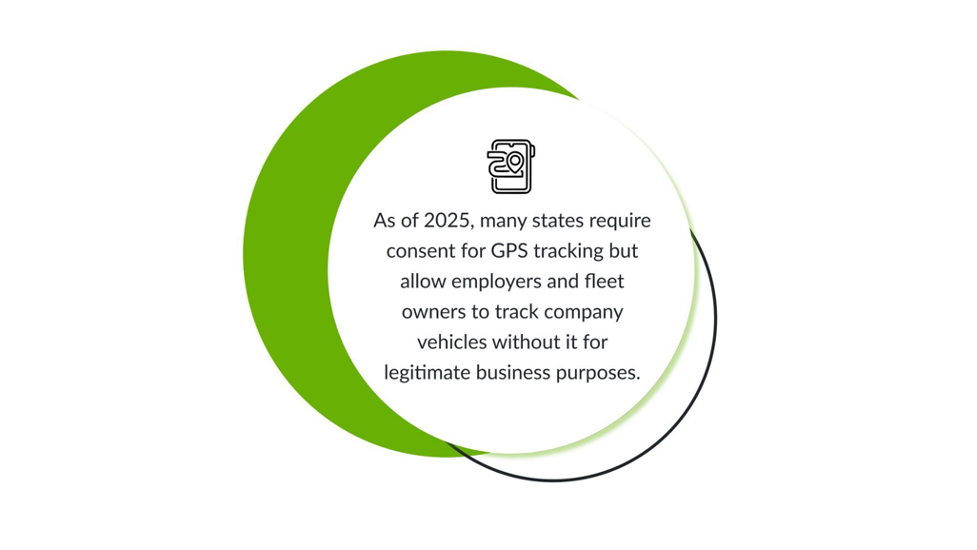Across the U.S., an array of state and federal laws govern how and when employers can track their vehicles and drivers. With privacy concerns on the rise, missteps can result in costly fines, lawsuits, and reputational damage. What’s acceptable in one state could be illegal in another.
Moreover, suppose you’re a fleet owner or run a logistics business. In that case, this legal complexity makes it even more critical to develop a clear, employee GPS tracking policy 2025 that meets both state and federal rules. Failure to do so can lead to unnecessary fines, lawsuits, and reputational damage.
In this blog, we’ll provide you with a comprehensive guide to GPS tracking consent laws, legal compliance, employee privacy safeguards, state-by-state requirements, and proven best practices to protect both your operations and your people.
So, let’s start.
What Is GPS Fleet Monitoring and Why Use It?
GPS fleet monitoring refers to using GPS technology in vehicles or mobile devices to track the real-time location and movement of company assets and employees. Fleet tracking systems typically include in-vehicle GPS units or smartphone apps that send location data to a central dashboard. Employers utilize these tools & systems to:
- Optimize Operations: Dispatchers can assign the nearest vehicle to a job, plan efficient routes, and reduce fuel costs by monitoring traffic and driver routes.
- Improve Safety and Security: GPS tracking helps locate drivers in emergencies and recover stolen vehicles or equipment. Some systems also monitor driving behavior (speeding, harsh braking) to promote safety.
- Verify Time and Attendance: For service and delivery businesses, GPS logs can confirm job site arrivals/departures and prevent time theft or unauthorized use of vehicles.
- Enhance Customer Service: Real-time tracking enables customers to receive accurate delivery ETAs and proof of service.
While GPS fleet monitoring offers clear business benefits, it also blurs the line between productivity and privacy. Employees may feel uneasy knowing their movements are monitored, especially if tracking extends beyond work hours. This makes understanding the legal boundaries, including employee privacy and GPS monitoring obligations, critical before implementing any tracking program.
Let’s discuss the legal implications of GPS tracking.
Federal Law and GPS Tracking of Employees
Before you start tracking your fleet, here’s what federal law says, and why it’s only part of the picture:
- No federal ban: There is no single U.S. law that prohibits private employers from using GPS tracking on vehicles or employees.
- Vehicle ownership matters: Employers are generally allowed to track company-owned vehicles for legitimate business purposes.
- Industry mandates exist: Federal regulations like the Electronic Logging Device (ELD) mandate require commercial trucking companies to use GPS to log driver hours.
- State laws take the lead: Despite no broad federal restriction, GPS tracking is governed mainly by state-specific laws.
- Privacy still applies: Federal privacy principles like those in the Fourth Amendment don’t directly apply to private employers, but they influence how states regulate workplace surveillance.
In essence, federal law permits GPS tracking for business use, but compliance ultimately depends on the fleet monitoring legal requirements in the USA for each state.
Quick Overview of State GPS Fleet Tracking Laws in 2025
GPS tracking laws vary widely by state. While tracking company-owned vehicles is legal in all 50 states, how and when you can track employees depends on where you operate. Most states regulate GPS through anti-stalking or privacy statutes rather than workplace-specific laws.
Let’s take a look at which state falls into what category:
Consent-Required States
Many U.S. states require explicit employee consent before any tracking. Examples include California, Maryland, New Jersey, Louisiana, and Virginia.
Here’s the state-wise specifics that make the difference:
- California: Criminal offense to install a tracker without both the owner’s and driver’s consent
- New Jersey (2022 law): Employers must provide written notice before tracking vehicles used by employees
- Maryland: Non-consensual GPS tracking can be charged as criminal stalking (up to $5,000 fine or 5 years’ jail)
If your state requires consent, always get signed employee agreements before using GPS trackers.
Owner-Exemption States
Many states, including Texas, Illinois, Missouri, Oregon, and Pennsylvania, allow GPS tracking of company-owned vehicles without requiring employee consent. While monitoring is permitted, it’s best practice for employers to disclose their tracking policies to employees to maintain transparency and avoid potential privacy concerns.
Notable points to consider:
- Laws typically ban tracking someone else’s private car, but tracking your own fleet is permitted
- Texas: No restriction on employer GPS use for business-owned vehicles
- Illinois & Missouri: Employers can track their trucks; no expectation of privacy
Even in these states, a transparent employee GPS tracking policy 2025 (for your organization) helps prevent trust issues and improves morale.
Privacy & Misuse Safeguards
Some states focus less on consent and more on preventing abusive tracking behaviors. These laws make tracking illegal if used to harass, intimidate, or cause emotional distress.
- Applies in states like Colorado, Maine, Mississippi, and Washington
- Colorado’s “Vonnie’s Law” bans GPS tracking that causes fear for personal safety
- Tracking is only legal for legitimate business purposes and during work hours
Rule of thumb: Even where consent isn’t required, respect employee privacy and GPS monitoring boundaries.
Employee Privacy, Consent, and Surveillance Considerations
Employee privacy is the most crucial aspect of GPS monitoring laws. The essential legal consideration is balancing an employer’s legitimate business interests with the employee’s reasonable expectation of privacy.
Here are critical points to consider:
- Company vs. Personal Vehicles: Tracking company vehicles is legal during work hours. Always get written consent for tracking a personal car or device. Limit GPS to company assets for safer legal compliance.
- On-Duty vs. Off-Duty Monitoring: Tracking outside work hours can lead to privacy invasion claims. Restrict tracking to business hours and work-related routes. Use policies to turn off monitoring after shifts.
- Consent & Transparency: Obtain consent and be transparent about GPS tracking. Use consent forms during onboarding to set clear expectations and avoid legal issues.
- Privacy Rights & Data Protection: GPS data is personal data under laws like the CCPA. Safeguard data, disclose usage, and comply with data access or deletion requests. Never use GPS data for non-work purposes.
- Surveillance & Harassment: Use GPS only for legitimate business purposes. Avoid tracking to micro-manage or punish, as it could lead to harassment claims. Adjust practices to ensure compliance.
Best Practices for Legal GPS Fleet Monitoring
Implementing GPS tracking in a legally compliant and ethical way comes down to policy, communication, and restraint. Follow these best practices to protect your business and your employees’ rights:
Step 1: Create a Clear GPS Tracking Policy
Define the purpose, scope, and data use of GPS tracking. Be specific, e.g., “GPS trackers on company vehicles monitor routes and delivery times during work hours.” Ensure the policy covers non-work-related use.
Step 2: Obtain Employee Consent
Get written consent where required, or have employees acknowledge the GPS policy. This can prevent disputes and meet legal requirements in states requiring consent.
Step 3: Limit Tracking to Work Hours
Track only during work hours and for business use. Use “privacy mode” or pause tracking after hours to respect employee privacy.
Step 4: Communicate Transparently
Inform employees about GPS tracking, its purpose, and allow them to ask questions. Train managers to use GPS data appropriately and emphasize its role in operations, not surveillance.
Step 5: Secure and Retain Data Responsibly
Protect GPS data and limit access. Retain data for at least six months as required by regulations and delete unnecessary records. Avoid altering data during potential claims.
Step 6: Stay Updated on the Law
Designate someone to monitor legal changes and review policies annually with legal counsel to stay compliant.
Step 7: Enforce Policies Consistently
Apply GPS tracking uniformly across employees to avoid perceptions of unfair treatment.
By following these steps, you demonstrate good faith and compliance, which can be a strong defense if an employee or regulator ever questions your GPS monitoring.

Risks of Non-Compliance and Legal Consequences
Using GPS fleet tracking without regard to legal limits can lead to serious repercussions for your business:
- Criminal Penalties: Unlawful GPS tracking can lead to criminal charges under anti-stalking or harassment laws, with fines and jail time possible. Violations, like tracking personal vehicles without consent, may result in prosecution. Managers may also face personal liability for unlawful tracking.
- Civil Lawsuits: Employees can sue for invasion of privacy, wrongful termination, or emotional distress due to excessive tracking. Even if legal, 24/7 tracking can lead to legal claims, especially if it results in wrongful termination.
- Regulatory Fines: Non-compliance with state laws, such as failure to notify employees, can lead to fines (up to $2,500). In regulated industries, tampering with required tracking devices (like ELDs) can bring DOT fines.
- Employee Morale and Reputation: Excessive or undisclosed tracking harms employee trust and morale, leading to decreased productivity and higher turnover. It also damages your reputation as an employer. Transparency fosters a culture of accountability and respect.
The legal risks of improper GPS monitoring are real, from lawsuits to criminal charges; so compliance is not just a box to tick, but essential for your company’s well-being.
Actionable Checklist for GPS Fleet Monitoring Compliance
Before you implement or update your GPS fleet tracking program, run through this quick compliance checklist:
- Understand Laws- Research state-specific GPS laws. Know which states require consent or notice, and consult legal counsel if needed.
- Create a Written Policy- Draft a clear GPS tracking policy outlining who, what, when, why, and how, including privacy safeguards (e.g., no off-duty tracking).
- Notify & Obtain Consent- Inform employees before tracking begins. Get written consent or acknowledgment where required, and keep records.
- Limit Tracking- Set GPS systems to track only during work hours or in work zones. Instruct employees to disable tracking off the clock.
- Use Reputable Tech- Select tracking solutions with privacy features (e.g., scheduled active times, geo-fences) and secure data with encryption.
- Train Staff & Managers- Ensure proper use of GPS data by managers and educate employees on its benefits for safety and efficiency.
- Monitor & Audit Use- Review GPS data usage periodically, auditing who accesses it to prevent misuse and ensure compliance.
- Secure & Retain Data- Store data securely for only as long as necessary. Follow retention guidelines and properly dispose of outdated data.
- Stay Updated on Laws- Review your policy annually and update it for any legal changes. Retrain staff if necessary.
By following this checklist, businesses can confidently deploy GPS fleet monitoring while staying compliant. You’ll enjoy the benefits of enhanced efficiency, improved security, and optimized fleet operations, all without risking legal violations or breaching employee trust.
But compliance goes beyond just following the rules, as it’s about partnering with a company that is equally committed to stringent regulations and upholding the same high standards of ethics. EcoTrack not only checks all the boxes for legal compliance but also aligns with your business’s commitment to responsibility, transparency, and employee respect.
Build a Smarter GPS Fleet Monitoring System with EcoTrack
Maximize fleet efficiency and safety with EcoTrack’s AI-driven cameras and real-time GPS tracking. Today, navigating complex GPS tracking laws is a must-do for businesses, and EcoTrack ensures you stay compliant while optimizing operations.
By securing employee consent and maintaining transparency, EcoTrack builds trust while providing precise data to improve performance. With features like driver routing, heavy equipment tracking, and remote temperature monitoring, EcoTrack simplifies fleet management without sacrificing privacy or compliance.
Moreover, EcoTrack also offers:
- Real-Time GPS Tracking
- Driver Routing & Dispatch
- Heavy Equipment Tracking
- Remote Temperature Tracking
- Electronic Driver Logs
Stay compliant, stay ethical, and power your fleet forward with EcoTrack. Book your demo today!







